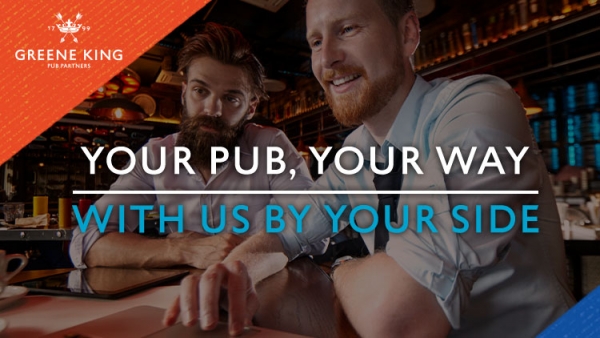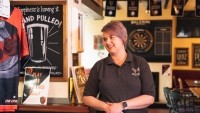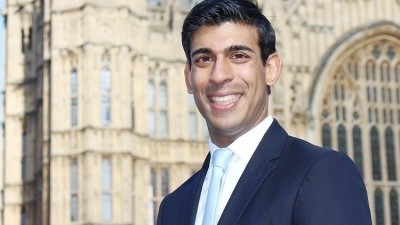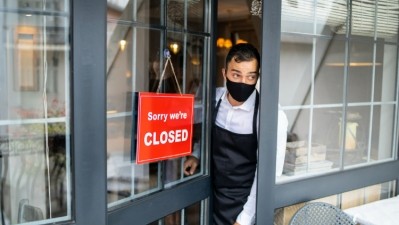FEATURE
FEATURE – How to become a self-employed pub operator
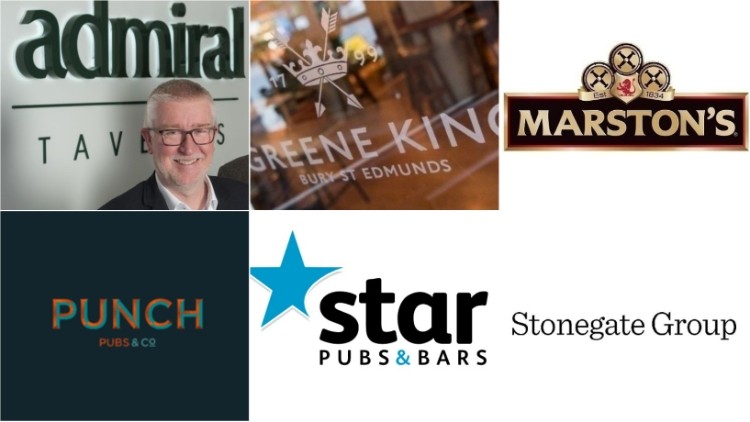
Promotional content
GREENE KING PUB PARTNERS - Your Pub, Your Way, with us by your side
At Greene King Pub Partners we work closely with you to build a brilliant pub business together. We work in partnership with you, giving you all the tools you need to create a unique pub. With over 200 years experience of brewing beer and running pubs, we know exactly what it takes to run a great pub.
We know everyone's reasons for taking on a pub are different, so we offer a range of agreement types to ensure we have something that’s the perfect for you. From tenancy agreements to franchise agreements we have something for everyone. Our tenancy agreement enables you to use your entrepreneurial skills to build a great pub business. Our Hive Pubs franchise agreement gives you the freedom to run your own pub business by implementing our proven business model, where we set you up and supply you with all the products you need.
No matter the kind of pub you choose to run with us or the agreement you operate it under, you’ll always be supported by one of our Business Development Managers, who are there to help your business grow and flourish. You’ll also have access to our award winning training team – compiling of experts in food, drinks and operations.
Whether you are an experienced pub tenant, multi-site operator, or pub manager looking to run your own pub, we are here to run a great pub business together.
Click here for more details.
Well, the easiest way into the game is to check out what the big six pubcos are offering in terms of their first-step-on-the-ladder pub models when it comes to running a site.
Here, we are looking at the steps to take if you want to be self-employed so although entering the trade can be done through taking on a managed pub, this feature looks at models that can lead to greater financial benefits rather than a salaried position.
Becoming self-employed at the lower level can involve a smaller investment than some other pub ownership types and, although you are likely to be tied to sell certain products, you will have a lot of help from the pubcos and this can include renovations and help with all aspects of the pub world.
Taking on the self-employed mantle usually means you have some experience in pubs while those not having as much knowledge may wish to explore the possibilities of operating a managed site.
The big six pubcos that can help you achieve your ambitions are (in alphabetical order): Admiral Taverns, Greene King, Marston’s, Punch Pubs, Star Pubs & Bars and Stonegate.
Admiral Taverns
Promotional content
Interested in running your own pub?
Welcome to Admiral Taverns, the UK’s leading community pub group, home of 1,600 community pubs. Community is the heart and soul of our business. All our pubs benefit from hard-working, entrepreneurial licensees dedicated to making their pub the hub of their local community. Our licensees enjoy fantastic levels of support including marketing, property management, training and much, much more. Join us and be the author of your own story!
We have worked hard to achieve consistent industry recognition, winning awards and accolades year-on-year, as well as constantly achieving the highest overall score amongst the regulated, national pub companies for our licensee-centric approach.
Our goal is to create sustainable, individual and authentic community pubs, by supporting our licensees to build great local businesses. At the centre of every great Admiral community pub is a dedicated licensee and you can be confident that in partnering with us, you’ll have an experienced team behind you.
Don’t just take it from us though, read what our fantastic licensee, Laura at the Bull and Bush had to say about us:
“Getting in touch with Admiral was straightforward and I was guided all the way through from my initial enquiry to speaking to the local Business Development Manager and meeting him and discussing the options available.
”Admiral, from reading online initially and from my own experience, is deservedly rated the best pub co in the country - its support is second to none.”
Click here for more details.
Admiral Taverns operates about 1,600 pubs across the UK. It uses a predominantly leased and tenanted model while around 10% of its estate is made up of sites run under a community wet-led operator agreement.
The Chester-based pubco’s tenanted and leased model means Admiral owns the pub and agrees to rent the premises to a licensee via a lease or tenancy agreement. It gives responsibility for the day-to-day handling of the business to the publican.
The level of rent will be dependent upon the extent of the tie with a full tie reflecting the lowest rent payable. For licensees on long-term agreements, it offers free-of-tie options for certain drinks categories in exchange for an annual fee.
There are two core agreements, the Admiral Tenancy agreement and the Admiral Lease.
For new licensees, this is usually a fixed five-year tenancy agreement. It may not be assigned and is excluded from the security of tenure provisions of the LTA 1954, which means there is no automatic right to renewal. There is no open market rent review within the Admiral Tenancy agreements.
Given the shorter term of the Admiral Tenancy agreements, a licensee’s repairing obligations are less onerous than the Admiral Lease and while the publican is not responsible for structural defects, they are responsible for maintaining internal repair and decoration. For new tenancy agreements, a ‘schedule of condition’ will be provided to highlight the condition of a property in advance of a licensee preparing their business plan.
Here are the key features of the tenancy agreement:
- Five-year fixed term
- One supplier for all beer, cider, flavoured alcoholic beverages, wines, spirits and soft drinks
- Fully Tied with tie flexibility provided through Tie Release Fees
- Pricing and discounts agreed with rent
- Fair repair and maintenance obligations. Rent is fixed for the term, with annual CPI indexation
- You can terminate the agreement on six months’ notice
- Access to a range of training courses
- Access to full membership through the British Institute of Innkeeping (BII)
While the ‘Fully Repairing and Insuring Lease’ model is claimed to be “perfect for experienced and well-funded licensees who want time to build up the value of their business and accrue the return on their investment with the added benefit of being able to sell their lease on should they choose to”.
The Admiral Lease is designed to encourage greater lessee investment by offering more security and flexibility so lessees can develop the business over a longer period and create capital value; and they can set the term to suit their business plans in blocks of five years from 10 to 30 years.
Rents may increase or decrease annually on the anniversary date in line with inflation. In addition, rents are also separately reviewed every fifth year of the term to an open market rental.
Here are the key features of this model:
- Minimum ten-year agreement.
- Assignable after two years.
- Rent review every five years.
- Annual indexation increases.
- You will be responsible for all repairs and maintenance
Greene King
Suffolk-based Greene King owns more than 1,200 pubs across the UK, from traditional country inns to city centre bars. Its business agreements have been designed to provide a range of flexible solutions and the costs for each type of business vary.
GK’s pub franchise agreement, which is a model in the Hive Pubs estate, is said to be a low-cost way to achieve the dream of running your own site. This agreement provides a self-employed publican with a pub that’s ready to trade with all food and drink supplied.
Hive Pubs, which sit between the managed and leased and tenanted model, takes care of all marketing and promotions, and installs smart till systems so a licensee can understand how the business is performing, and GK also covers the majority of bills. This means the operator can concentrate on growing their business and serving customers.
Operators get a guaranteed franchisee fee from GK and a share of turnover, profits and bonus opportunities.
The first Hive Pub was launched in November 2021 at the Maldon Grey in Sudbury, Suffolk. Operators Tony and Rebecca Bayliss say: “Hive gives us the freedom to focus on running a great community local, backed by the support and scale of Greene King.”
A Hive Pubs operator will receive a minimum annual income of £20,000 plus additional income based on performance. There is an ingoing cost of £5,000, which includes agreement fees, induction and on-site training. Additional income will come from a percentage of weekly turnover, a quarterly profit share and the ability to earn an additional bonus by meeting compliance audits.
If you have managed a pub previously, GK says this is an ideal starting point because it looks for someone who has experience and has what’s needed to make a venue stand out; some approachable who can make every customer experience a pleasure; an energised person who is ready roll their sleeves up to make a pub the best it can be; and a genuine tenant that foes about their work with honesty and integrity.
The skills needed for a Hive Pub franchise agreement include someone who prides themselves on being the best and delivering the best experience for their community; putting a smile on customers' faces; running a team in a fast-paced environment; and ready to step up and run their own pub business.
Here are the key features of the model:
- Five-year fixed term
- Tenant would be fully self-employed and need to set up a limited company and become VAT-registered
- GK pays for all running costs, including utilities and sports TV, where applicable
- Tenant pays for staff, insurances, TV licence and council tax
- Ingoing cost of £5,000
- Tenant also required to pay for independent financial and legal advice before taking on agreement. GK recommends around a further £2,000 in working capital to ensure that you have enough money for set up as you will not get paid your guaranteed or additional income immediately
- Food and drinks is made up from GK menus
- The tenant can terminate the agreement not less than three months’ notice
- GK can only break the agreement early if there are found to be critical service failures
- Tenant is able to transfer/assign the agreement subject to permission
Hive gives us the freedom to focus on running a great community local, backed by the support and scale of Greene King.”
Marston’s
Marston’s operates about 1,450 pubs with just under 500 of these being a managed-operator model. Of the remainder, about 250 are tenanted and leased with about 700 on a type of partnership agreement, where the operator and the pubco share the turnover made.
If anyone wanted to become a self-employed pub operator, two potential options would be within the ‘Pillar’ model in the Venture division or the ‘retail agreement’ in its Great Locals format.
Venture director of operations John Green says: “We’ve got a range of turnover share agreements, and Pillar and Retail Agreement are two of those. What they mean is operators are self-employed but there’s far less risk, the pubs are ready to trade in terms of the kit, the technology, the tills, the payment methods and the risk for our partners on those agreements is lower because we share the burden of the costs. So there are varying ways of running a pub with Marston’s depending on how much risk you want to take and how experienced you are.”
The Pillar model allows a licensee to run their own food operation while a retail agreement has a food menu defined by Marston’s where the food is supplied with set margins to it.
“On Pillar, you would take on more costs and that would include food, entertainment, cleaning products, crockery – all that sort of stuff – but the possibility of reward is higher,” explains Green.
On wage expectations, Green says operators are earning “in the region of £30,000 to £40,000 on average but the really good pubs can make £70,000 to £100,000.”
There is support for licensees such as induction training and on till systems, PDQs, payment systems and back-office systems. Pubs with a set food offer have equipped kitchens plus associated training while Pillar employees also have ongoing training around food and menu development.
Green adds: “We are giving these people absolutely every opportunity we can to make a success of their business. And with both Pillar and the retail agreement, the repair liability for the building falls with Marston’s so there isn't that concern that, if something needs fixing, they’ve got to find the money for it.”
With drinks, publicans choose from the range offered by Marston’s and don’t pay anything until the tills start ringing then the money is divided on a percentage basis, depending on the agreement.
Talking about the joy of having great licensees on the self-employed models, Green says: “It’s about people running really good pubs and delivering really good memories and great experiences for our customers.
“Really good pubs just get the basics right and they understand what their communities want. Our pub, the Gun Inn in Findon won the Great British Pub of the Year award and Sally [Harris] does loads and loads of really good things. It’s got an outside outside bar, a photo booth, she does French nights, she does loads of stuff but what she really does best is she understands her community and she gets the basics right.”
Here are the key features of the model(s):
- Five-year fixed term
- Tenant given working capital
- Professional advice (legal, financial and property)
- Personal costs
- Insurance
- Council tax paid
- Staff costs
- Business rates paid (Pillar model)
- Ingoing cost of £5,000 plus working capital and legal fees
- Marston’s pledges to do all it can to help licensees in terms of breaking the agreement if necessary
Punch Pubs
Burton-on-Trent-based Punch Pubs operates about 1,200 pubs across the UK across a range of formats that can broken down into three agreements: Management Partnerships; Turnover Tenancies & Leases; and Flexible Tenancies & Leases.
The likely model for those wanting to go self-employed and have some experience in the pub trade is a Flexible Tenancy.
Punch says whatever agreement you opt for, you always get a progressive pub company; industry-leading investment with a whole world of possibilities; industry-leading training, with its Academy and Kitchen; and industry-leading e-commerce platform – Punch Buying.
The pubco adds: “If you’re an experienced publican looking to take your business to the next level, but with the independence and flexibility to get creative and make it your own, then we’d love to support you along the way.”
Priding itself on providing pubs where everyone is welcome, Punch adds: “At our core, we’re about treating people with the warmth and hospitality they’d expect in any of our pubs. From a warm reception at our Welcome Inn and hands-on training at The Academy (our state-of-the-art training space with two fully working bars and a live cellar), to innovative online courses, regular catch-ups and marketing support that packs a serious punch, we’re with you every step of the way.
“Our goal is to help you and your pub to achieve your true potential, not just when it comes selling more beer or delivering a better bottom line – it’s bigger than that – it’s about outstanding publicans, busier pubs and more connected communities.
“As a Punch publican, you can count on the best support in the business, delivered with a smile.”
As with all models, licensees get living accommodation, but on the Flexible Tenancy, you have the responsibilities of paying bills and maintenance while EPoS is not provided nor are food menus.
Punch Pubs, which was crowned Best Leased & Tenanted Pub Company (501+ sites) in the 2022 Publican Awards, adds that in 2019, it spent £35m “unlocking epic possibilities in communities up and down the country” in its estate.
Here are the key features of the model:
- Term – up to 5 years
- Either party has the ability to serve notice at anytime
- No automatic right to renew
- No market rent reviews but will be indexed annually by RPI
- Tied wet products with flexible price bands and release fees available
- Security deposit from £1,000
Our goal is to help you and your pub to achieve your true potential, not just when it comes selling more beer or delivering a better bottom line.”
Star Pubs & Bars
Star Pubs & Bars is Heineken’s pub division. The majority of its 2,400 pubs are leased out to small businesses and entrepreneurs. About 140 pubs operate on its Just Add Talent self-employed, managed-operator model, a number that is growing.
Star’s ambition is to build Britain’s best pub company by attracting and retaining the best operators, investing to create great pubs at the heart of their communities and by providing licensees with market-leading insight and support.
The Just Add Talent (JAT) model was created to make it easier for people to take on their own pub business and is ideal for assistant managers and managers already in hospitality, as well as those outside the sector with business or retail experience.
JAT is said to be a low-risk, low-cost turnover and profit share model. The ingoing cost is £4,000 compared to at least £10,000 for a leased and tenanted pub and far more to purchase a freehouse.
Under the JAT agreement, operators run the business but only fund their and their staff’s costs. Star Pubs & Bars pays for all other expenses including utilities, rates, food, drinks and repairs. The revenue and profit are shared between both parties with no limit on operators’ earnings.
The retail offer is set by Star and comes with an extensive support package including induction training, tried and tested food menus, a proven drinks offer and all the necessary back-office systems such as EPoS, health & safety and compliance. So, while operators learn best practice in all these areas, they are also freed up to focus on business development, customer service and staff management.
On-target earnings vary depending on the retail offer, location, size and type of pub but are, on average, £30,000 per year. This includes an agreed percentage share of turnover (paid weekly) and a percentage of profit that is paid quarterly. Profit share is not capped, so the more profitable the pub is, the higher the earning capacity of the operator.
The JAT estate ranges from community pubs to premium locals and puts an emphasis on great drinks, food, entertainment and sports.
JAT head of operations Beki Davies says: “This type of agreement offers a fantastic opportunity for people to run their own pub business with minimal risk.
“The ‘Just Add Talent’ model is specifically designed for new recruits with the aptitude and potential to run their own pub business but not necessarily with lots of experience or cash to invest. The four key attributes we look for are: a passion for pubs; an understanding of great customer service; the ability to motivate and run a team of staff and a willingness to learn.”
Here are the keys features of the model:
- Ingoing costs of £4,000
- Term is open-ended and can be terminated by tenant with three months’ notice or by Star at any time
- No rent, utilities or rates
- No fixtures, fittings or maintenance costs
- Tenant is paid a revenue share between 20-30% of net turnover
- Tenant also gets 20% of the pub’s net profit paid quarterly in arrears
Stonegate
Stonegate operates about 4,800 pubs in total, comprising around 1,400 in its managed division and about 3,400 leased and tenanted businesses.
Its Craft Union model is a community, wet-led business that sits in the self-employed bracket – ideal for those wanting to enter the self-employed trade with experience of working in pubs, and numbers about 470 sites across England and Wales.
Craft Union began in April 2015 and has grown at scale and pace to win the Best Community Pub Operator award at The Publican Awards 2022.
Craft Union operations director Frazer Grimbleby says: “[Craft Union] is a great way for somebody who’s got a real passion and experience of operating pubs, particularly in their own community space, and use their ability to run well-invested quality community pubs.”
Craft Union is a wet-led-only operation. There is no provision for food. Its operators are all self-employed. There is a management services agreement between Craft Union and the licensee. It works by having the company “take care of investment, take care of the operating costs, take care of the running costs of the pub,” Grimbleby says. “To give examples, we would pay for the entertainment costs in the pub, the security costs, but then we'd also paid for the insurances, the utilities and any investment or maintenance.”
A plan is drawn up of how the pub can thrive while catering for the entire community, which is bespoke to each pub.
Nick Andrews, managing director for Stonegate Pub Partners, Craft Union and Vixen, adds: “I suppose it’s a halfway house between a managed model and a full leased and tenanted model it provides a degree of certainty or safety.”
Craft Union also gives help to training staff, which are paid by the publican, and can give those employees the opportunity to take on their own site in the future.
The price of entry to taking on a site is a £500 bond only. There follows a training programme even for experienced operators. Grimbleby adds: “There is no tie involved in our agreement. We work with our operators to define range and define pricing on an individual basis to provide value to the community.”
Of the pub’s weekly turnover, 18% is taken by the licensee, which they use to pay their staff and take a wage. Therefore, the more money an operator makes, the more they get in terms of money.
There is no limit to what an operator can earn but Grimbleby says “we certainly expect our operators to be earning in excess of £25k to £30k a year”.
Andrews stresses the 18% earned by operators can be added to through incentive schemes set by Craft Union.
Here are the key features of the model:
- 18% of the weekly net turnover to pay publican and their staff
- Private accommodation for licensee and family, maintained to an excellent standard
- TV licence and council tax are costs for licensee to pay
- Round-the-clock support from an experienced operations team
- A dedicated regional manager and network of fellow operators
There is no tie involved in our agreement. We work with our operators to define range and define pricing on an individual basis to provide value to the community.”
Pubs code
Tenants within all six of the big pubcos (those who operate more than 500 pubs) are covered by the regulations laid out in the pubs code, which came into force in July 2016. The code is designed to protect the rights of tied tenants in England and Wales and is overseen by the pubs code adjudicator (PCA).
The pubs code is based on the core principles of fair and lawful dealing between the pubcos and licensee and that a tied tenant should be no worse off than a free-of-tie tenant. The PCA’s role is to oversee the operation of the pubs code, arbitrate disputes and investigate alleged breaches. It also sets standards of how a pubco should act when a tenant wants to go free of tie.
There are plenty of options from the ‘big six’ if anyone wanted to start running a pub on a self-employed basis but the important thing to do is ensure you do all the research when it comes to choosing who you want to go with.
Each one of these businesses wants your pub to succeed because it is in everyone’s best interests to do so and the amount of support they can provide from training to financial support and everything in between could help you become a real success and a star to your customers.
